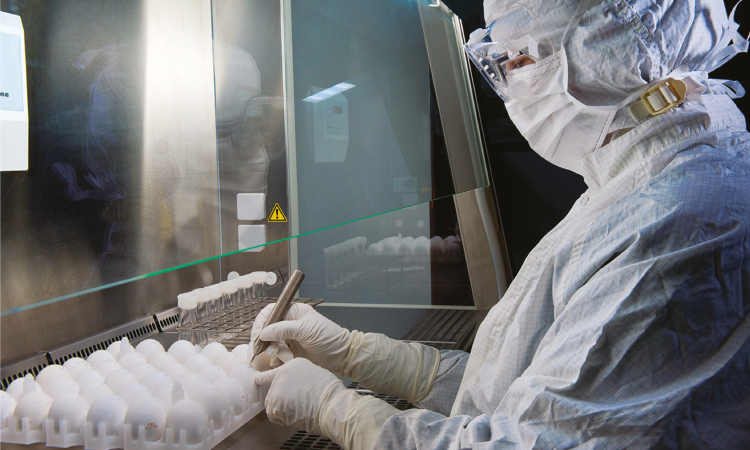Ambitious plans to supercharge Liverpool City Region’s economy, creating 8,000 new jobs and saving lives across the world have been unveiled today.
The city region’s Life Sciences Investment Zone plans are detailed in a new Prospectus highlighting the area’s world leading innovation strengths and assets, while showcasing 21 projects that will create new hi-tech facilities, provide business and innovation support and train the next generation of talent.
Major developments are proposed at Maghull Health Park, St Helens Manufacturing and Innovation Campus, Earlsfield Park Knowsley, Sci-Tech Daresbury and Knowledge Quarter Liverpool, where two new buildings will provide additional laboratory space to boost the city region’s world-leading infection innovation capabilities.
Other projects will drive breakthroughs in children’s health, mental health, vaccine production, therapeutics and the use of data and AI to help people lead healthier lives.
The Investment Zone will run for 10 years and has the potential to deliver £800m of public and private investment.
Three Investment Zone tax sites at Maghull Health Park, St Helens Manufacturing and Innovation Campus and Sci-Tech Daresbury will offer financial benefits to expanding or relocating businesses, while Halton and St Helens borough councils will be able to retain business rates on new properties to help pay for further developments.
Mayor of the Liverpool City Region, Steve Rotheram, said: “With up to £800m of investment and thousands of quality, high skilled jobs on offer, the Liverpool City Region Innovation Zone is an important tool in our arsenal to position our area at the head of UK science and innovation.
“But in the Liverpool City Region, we’re proud to do things differently. Throughout the development of our Innovation Zone, I have been clear that any investment in our area must go further than purely financial incentives. I want to use our status as a force for good, to connect our residents up to secure, well-paid jobs and training opportunities, and attract transformational investment into our communities.
“Becoming an innovation superpower is a lofty ambition – but I firmly believe that, if anywhere has the potential to achieve it, then it is the Liverpool City Region.”
Projects planned as part of the Investment Zone include:
- HEMISPHERE One and Two in Paddington Village, Liverpool City Council’s flagship regeneration scheme in the Knowledge Quarter Liverpool innovation district. The two multi-storey high-tech new builds will help satisfy a soaring demand for chemistry and life science laboratories.
- Within Knowledge Quarter Liverpool, Investment Zone Funding will enable the expansion of the University of Liverpool’s world-first Centre of Excellence for Long-acting Therapeutics (CELT) and the Civic HealthTech Innovation Zone (CHI-Zone), which will spearhead the use of AI to transform health and social care. The Pandemic Institute will also continue to progress its plans to tackle emerging infections and pandemic threats.
- New high-containment Category Three labs fitted with leading-edge robotics and AI technology at the Liverpool School of Tropical Medicine for use by the Infection Innovation Consortium: iiCON, a £260m programme that works with more than 800 companies worldwide and has delivered over 5 billion units of life-saving products and treatments in just 3½ years.
- Major expansion of Sci-Tech Daresbury. The Investment Zone will help deliver a new laboratory and new office building to accommodate further growth on the north of England’s only national science and innovation campus. It would ultimately deliver 70,000 sq m (750,000 sq ft) of new laboratories, offices and technical facilities. The site is home to the NW Healthtech cluster and hosts more than 150 high-tech businesses, including 50 involved in health and life sciences. It is also home to the UK’s most powerful supercomputer dedicated to industrial R&D. Investment Zone support will help Sci-Tech Daresbury towards ambitious plans to increase its workforce from 2,000 to around 10,000 over the next 15-20 years.
- A Mental Health Digital Research Centre at Mersey Care’s 42-hectare Maghull Health Park, which is home to Europe’s largest concentration of complex secure mental health services and leading clinical excellence for serious mental illness. Based on the former HMP Kennet site, the new centre will create the environment for innovators to develop new treatments to support improved mental health care. Mersey Care’s expansion plans are expected to create 1,270 new jobs.
- St Helens Manufacturing and Innovation Campus. The £500m project will redevelop land formerly used by the glass industry to expand the area’s manufacturing and innovation capabilities. It has the potential to create more than 1,000 new jobs. Key players include St Helens Borough Council, Glass Futures, Inovus Medical, NSG Pilkington, Network Space and SINA Medical Glass, which is creating a modern manufacturing facility.
Other projects are located at Alder Hey Children’s Hospital, Earlsfield Park, Knowsley and the Speke Pharma Cluster, where Investment Zone funding is set to support TriRx’s £10m investment to enhance its capabilities to manufacture monoclonal antibodies.
Speke Pharma Cluster is one of Europe’s largest biomanufacturing centres, containing the UK’s biggest vaccine facility, and is home to some of the world’s leading pharmaceutical names including CSL Seqirus and AstraZeneca, who last week announced a £450m investment in its Speke facility.
The Liverpool City Region also has the UK’s largest concentration of specialist hospitals outside London and with more than 7,000 volunteers, is a leader in clinical trials.
Together with neighbouring Cheshire and Warrington, the city region delivers £2bn of infectious disease research and development each year – the biggest concentration in the UK and one of the largest in Europe.
Investment Zone projects will also provide business and innovation support, with KQ Liverpool and Inovus running new skills and talent programmes for local people to aid workforce creation and recruitment. Social value, net zero and equality, diversity and inclusion will be important considerations in project development.
The Investment Zone plans were developed in collaboration with the city region’s life sciences sector, with the University of Liverpool playing a major role.
University of Liverpool Vice Chancellor Professor Tim Jones said: “We are a global University, delivering world-leading research but with a keen focus on our civic role in the city and wider region.
“We look forward to playing a vital role in the delivery of these ambitious plans which will result in meaningful research that will have real-world impact.”
Liverpool City Region Portfolio Holder for Digital and Innovation Cllr Paul Stuart said:“The Investment Zone has the potential to transform the city region’s health and life sciences sector by growing our world-leading strengths and tapping into our innovative and entrepreneurial spirit.
“It will also provide huge opportunities to local people. The projects are both ambitious and imaginative and will help ensure the benefits are felt far and wide.”

